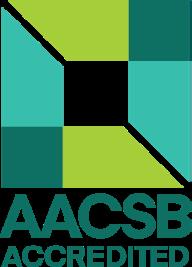FOSTERING A MENTALLY HEALTHY WORKPLACE: CULTURE, MINDFULNESS, & POLICY





Mental health challenges are impacting our country and our workplaces at an alarming rate. Each year approximately 1 in 5 adults experience a mental health challenge, and 1 in 20 adults experience a serious mental illness. The statistics are even more troubling for marginalized and/or vulnerable populations such as racial/ethnic minorities, veterans, LGTBQ+ individuals, and rural communities. In addition to diagnosable mental health issues, the workplace presents unique challenges such as stress and burnout. Although leaders and managers might be aware of the mental health crisis, few are equipped to effectively address it in their organizations. Further, the stigma often attached to people experiencing mental health challenges impedes their much-needed attention and care as well as their productivity and satisfaction at work. This course will explore how the mental health crisis affects workplaces and what can be done to address it. Participants will learn practical frameworks and receive actionable toolkits for assessing and addressing the mental health challenges they and others might experience at work.
Course Content
• Mental health
• Mental illness
• Burnout
• EDI
• Anxiety
• Depression
• Stress management
• ADHD

• Absenteeism and turnover
• Job performance, engagement, and productivity
• Substance use disorders
• Wellness
• Employee health benefits
• Mindfulness
• Stigma
This course is part of the Executive Leadership Certificate
Whether you are an aspiring professional or an attentive executive, this certificate can elevate your leadership potential. The courses in this certificate are designed to provide you with the expertise, credibility, and confidence required to lead modern teams.

This course is designed for workplace leaders, managers, and HR professionals. The strategies and practices discussed in this course can help participants approach mental health scenarios at any level of an organization. Participants will walk away with actionable insights that they can apply immediately in their personal lives and their professional environments (through policy changes, cultural shifts, etc.).
Increase your awareness of mental health issues at work – for self and others – including burnout, anxiety, stress, and depression
Dispel myths and stereotypes about mental health at work
Improve your ability to take positive actions toward mental health issues at work
Expand your EDI management skills by better understanding workers with current and potential mental health difficulties
Contribute to a healthy, welcoming workplace by increasing authenticity and psychological safety


Improve mental health knowledge among workplace leaders
Strengthen ethical culture by tending to workers’ mental health needs
Increase ‘bottom line’ results (such as lower absenteeism/turnover) by improving the mental health of your workforce
Contribute to your EDI commitments by better including employees with mental health issues
Improve communication and trust for all employees and leaders
Attract and retain talented workforce through increased compassion and loyalty for employees
In addition to developing knowledge and skills, you will receive SHRM credits as proof of your accomplishment.
Eccles Executive Education is recognized by SHRM to offer SHRM-CP or SHRMSCP professional development credits (PDCs). For more information about certification or recertification, please visit SHRMCertification.org
Presenting Faculty | Glen Kreiner, Ph.D.
Professor Glen Kreiner is the L.S. Skaggs Presidential Chair in Business Ethics at the University of Utah. He received his Master’s in Organizational Behavior from Brigham Young University and his Ph.D. in Business Administration from Arizona State University. He has taught courses and workshops on topics such as mindfulness, leadership skills, authenticity, identity-based leadership, work-life balance, and teamwork. Professor Kreiner has won multiple awards for his research, which focuses on topics such as stigma, mental health, workers with intellectual and developmental disabilities, identity, mindfulness, work-nonwork dynamics, and ethics. Outside of work, he enjoys traveling, cooking, and theatre, especially when he can do those things with his wife and three children.
The David Eccles School of Business enrolls about 6,000 students in its eight undergraduate majors, four MBAs, seven other specialized graduate programs, one Ph.D. program, and executive education curricula. It is also home to seven institutes and centers that support an ecosystem of entrepreneurship, technology, and innovation, including the Lassonde Entrepreneur Institute, Ken C. Gardner Policy Institute, Sorenson Impact Center, and more.
Our faculty members boast impressive professional and educational backgrounds and hold Ph.D.s from esteemed universities including the University of Pennsylvania’s Wharton School, Northwestern University’s Kellogg School, Harvard Business School, Stanford Graduate School of Business, and University of California at Berkeley’s Haas School.
Telephone: (801) 587-7273
Email: ExecEd@Utah.edu
Website: ExecEd.Utah.Edu
Registration: Eccles.Secure.Force.com/ExecEdApplication
1731 E Campus Center Drive
Robert H. and Katharine B. Garff Building, GARFF 4340
Salt Lake City, Utah 84112 TAKE THE NEXT STEP
050424


